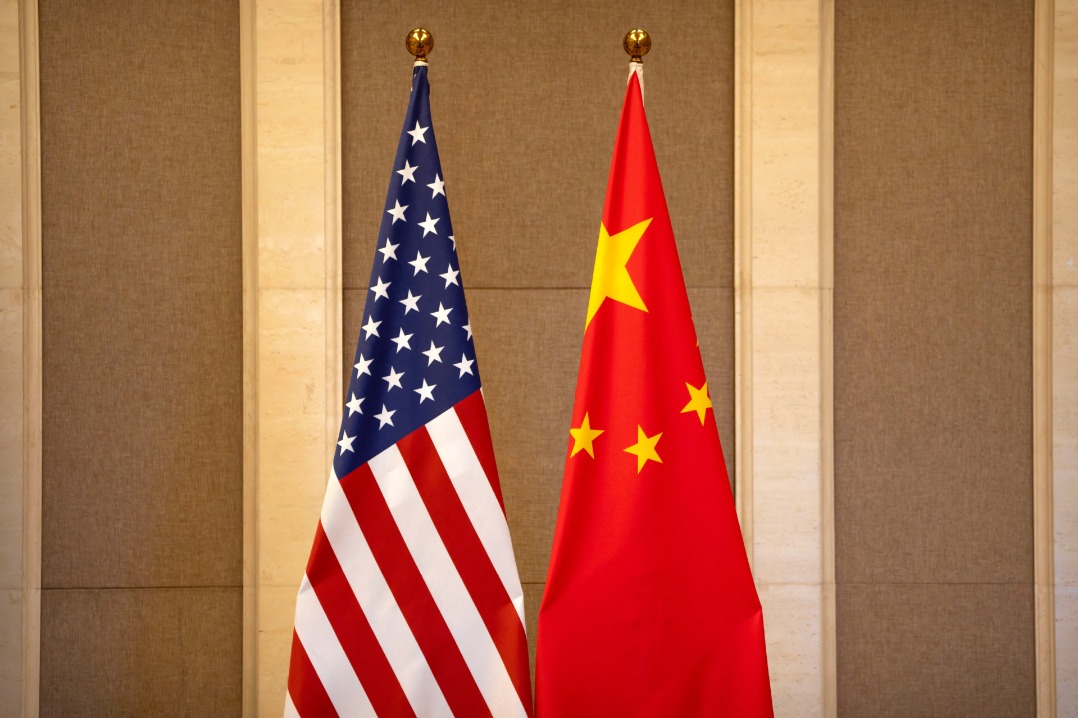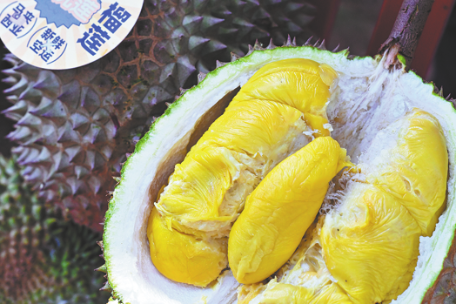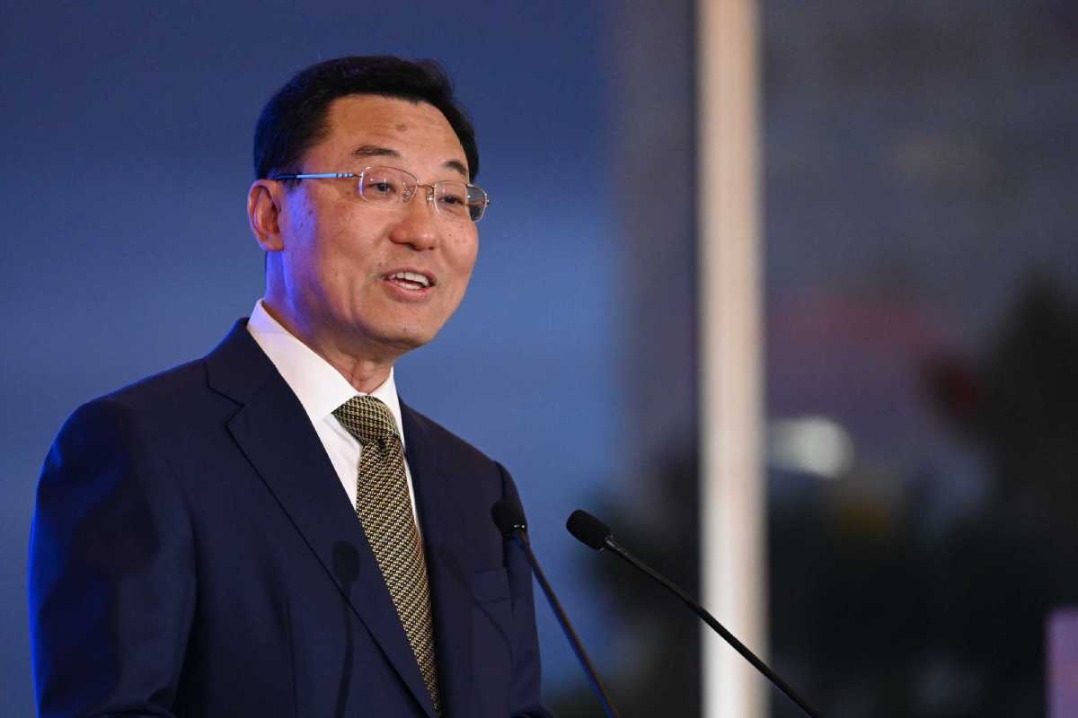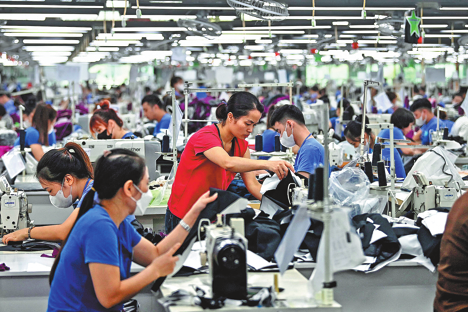Local-level exchanges foster China-US ties
Visit by delegation from Oregon set to deepen cooperation and understanding

For Deb Patterson, a member of the Oregon State Senate, her first trip to China was both intense and impressive. During the 15-day visit, she traveled along the country's eastern coast and inland regions, gaining a deeper understanding of China's geography, development and people.
"We (experienced) different climates, food and scenery, met people in each area, and learned a great deal," she said, adding that the delegation also explored more opportunities for cooperation with Fujian province and the coastal city of Tianjin — both of which have friendly relations with Oregon.
This year marks the 41st anniversary of the Oregon-Fujian sister-province relationship.
"We want to keep that relationship thriving," Patterson said. "Many of us came here not only to visit our sister state but also to learn more about all of China."
Patterson was part of a delegation led by Oregon Senate President Rob Wagner that visited 10 Chinese cities, including Shenzhen, Fuzhou and Chengdu. The trip concluded in Hangzhou, Zhejiang province, where they attended the seventh China-US Sister Cities Conference on Monday.
The delegation, consisting of state senators, bipartisan representatives and business leaders, was the most substantial Oregon has sent to China since the pandemic, Wagner said at the conference's opening ceremony, calling it a trip aimed at breaking down stereotypes.
In 2006, the Oregon Legislature became the first in the United States to pass a statute formally codifying a sister-state relationship with its counterpart in China — a move that Wagner said aims to ensure Oregon's sister-state relationship is nurtured, respected and carried forward for future generations.
Earlier this year, Oregon reaffirmed that vision by adopting Senate Concurrent Resolution 32, which recognizes the value of its partnership with Fujian province and Tianjin.
"It underscores the importance of subnational diplomacy at a time when global challenges — from climate change to economic uncertainty — require more dialogue, exchange and cooperation at every level," Wagner said.
Oregon's experience, he said, offers an important lesson that subnational relations thrive when they are rooted in law, supported by institutions and embraced across the political spectrum.
Since the establishment of diplomatic relations 46 years ago, China and the US have formed 288 pairs of sister states and cities. More than 30 local delegations from both sides have exchanged visits since the beginning of this year.
Monday's conference brought together more than 300 representatives from both countries, including more than 180 participants from 28 US states — making it the largest and highest-level local exchange event between the two countries in recent years.
Stabilizing force
Carol Lopez, chair emeritus of Sister Cities International in Washington, said the organization's network is a vital channel for turning goodwill into concrete actions — a powerful platform for sharing experiences, enhancing friendships and advancing cooperation.
Sister-city relationships also serve as a stabilizing force, even amid fluctuations in high-level relations, generating economic benefits, supporting job creation and demonstrating the positive effect of local diplomacy on the global stage, she said.
In a video speech, Chinese Ambassador to the US Xie Feng urged both countries to strengthen their local partnerships so that the "micro-circulation" of local cooperation can help improve the broader atmosphere of the bilateral relationship.
Xie called for deeper mutual understanding to ensure China-US friendship takes root among the two peoples, and for leveraging the warmth and vitality of people-to-people connections to dispel misunderstandings and break the "chilling effect".
He encouraged participants to use the conference as an opportunity to work out concrete proposals and gather momentum for the sustainable development of China-US relations, ensuring that cooperation can resist the headwinds of decoupling.
Yang Wanming, president of the Chinese People's Association for Friendship with Foreign Countries, said the sister-city cooperation between China and the US remains resilient and vibrant.
"Through various channels and connections, the two peoples have broken through information barriers, stepped into warm communities, engaged deeply on university campuses, and stayed in each other's homes — gaining a real, comprehensive and multidimensional view of both China and the US," Yang said.
Local-level cooperation enjoys vast potential and a solid foundation of shared interests, he said.
Citing the US heartland as an example, he said trade with China has created more than 400,000 jobs in these states, and more than 1,000 Chinese enterprises operating there have provided over 70,000 employment opportunities.
The result of China-US subnational cooperation and sister-city partnerships demonstrates that decoupling is neither a realistic nor a rational choice, Yang said.
Victoria Woodards, mayor of Tacoma, Washington state, said sister-city partnerships are built not on politics but on people. Collaboration does not just happen between nations; it begins with neighbors, cities and people, she said.
Woodards expressed hope that both sides will continue to visit and learn from each other, share meals and ideas, and create new partnerships that strengthen communities from both sides.
Chen Ye and Qi Xiao in Hangzhou contributed to this story.
Contact the writers at zhoujin@chinadaily.com.cn































